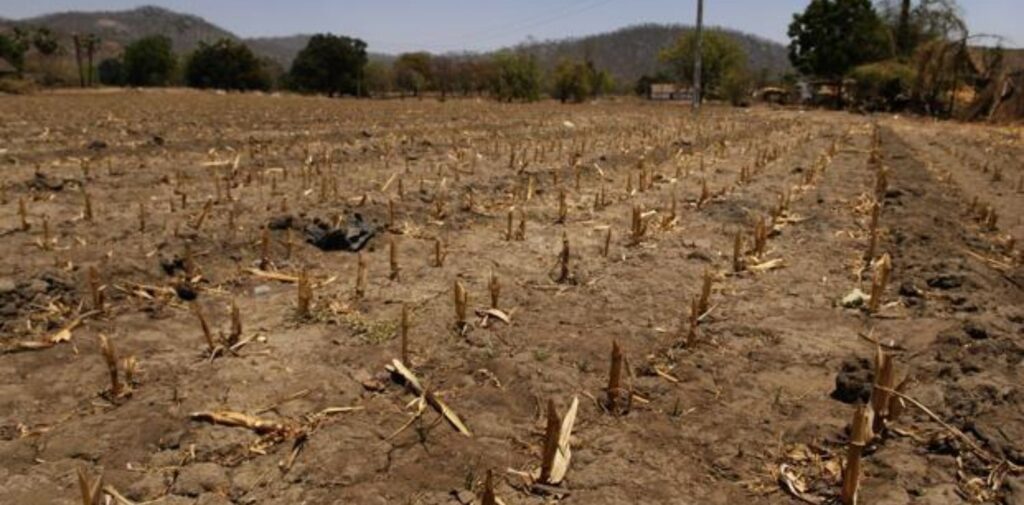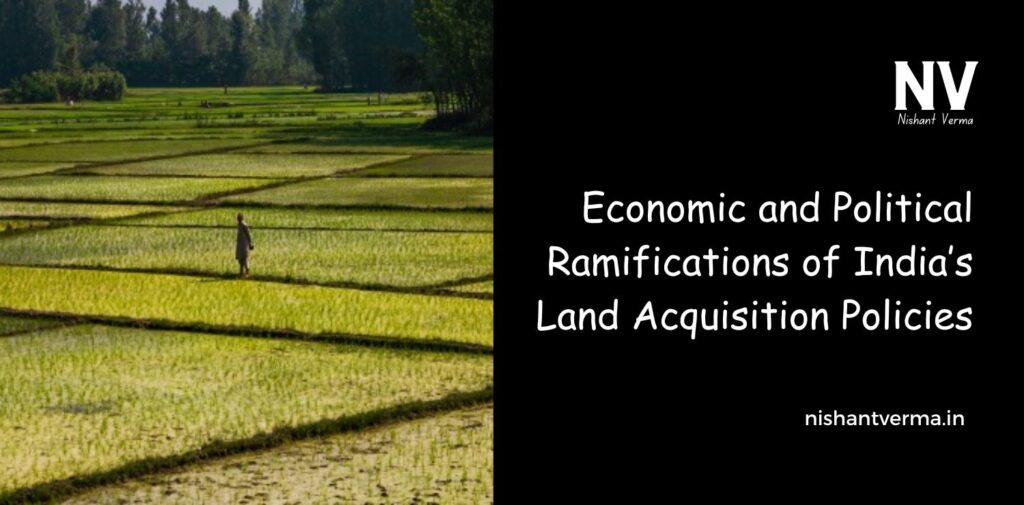Land acquisition has always been an important topic in India, especially in terms of how the government acquires land for different projects like roads, factories, and other public works. This issue has both economic and political impacts, and understanding these impacts is key to grasping how India has evolved since its independence. Let’s break down this topic in simple language, so everyone, even a young reader, can understand.
What is Land Acquisition?
Land acquisition means when the government takes land from people to build something for the public, like roads, railways, or factories. In India, the government may take private land, but they must compensate the people whose land they take. This process, however, has not always been smooth.

A Brief History of Land Acquisition in India
After India gained independence in 1947, the government needed land to build infrastructure for the growing nation. It started using land acquisition laws to take land from farmers and landowners. These laws were designed to help with the country’s development, but the process was often seen as unfair.
One of the most important laws was the Land Acquisition Act of 1894, which was used during British rule. This law allowed the government to take land without properly compensating the people who owned it. Even after independence, this law continued to be used, and many farmers felt they were unfairly treated.
In 2013, a new law called the Right to Fair Compensation and Transparency in Land Acquisition, Rehabilitation and Resettlement Act (commonly known as the Land Acquisition Act 2013) was passed. This law aimed to provide better compensation to the people whose land was being taken and ensure they were properly resettled.
Economic Ramifications of Land Acquisition
Land is a valuable resource. It is where people grow food, build homes, and carry out businesses. When the government acquires land, it affects the local economy in many ways.
- Impact on Farmers and Rural Economy: Most of the land acquired by the government is from farmers who rely on that land for their livelihood. When their land is taken away, they often lose their primary source of income. Many farmers in India live in rural areas where agriculture is the main business. Losing their land can lead to financial distress for them and their families. They may not always get enough compensation to make up for the loss, leading to poverty.
- Displacement of People: Sometimes, when the government acquires land for building factories, roads, or other public projects, entire communities can be displaced. These people, who once lived and worked on that land, now find themselves without a home. While the government promises compensation, the displaced people often struggle to adjust to new areas. They may not have the skills or resources to survive in different environments. This can increase the number of people living in poverty and reduce the quality of their lives.
- Impact on Local Businesses: Local businesses that depend on land for their work, such as small industries or family-owned shops, also suffer when land is acquired. The compensation may not be enough to help these businesses survive, leading to job losses and a decline in local economic activity.
- Development and Industrial Growth: On the flip side, land acquisition can lead to the development of industries, factories, and infrastructure, which can boost the economy. New factories can create jobs, improve transportation, and help the country grow. However, this development must be balanced with the needs of the people whose land is being taken. If people are not properly compensated or resettled, they may not benefit from the growth, and the economy may not improve for everyone.

Political Ramifications of Land Acquisition
Land acquisition also has major political effects in India. Politics often plays a big role in how land is acquired and how people react to it.
Protests and Public Opposition
Many people in India have protested against land acquisition policies because they feel the government is not treating them fairly. These protests can lead to a lot of political tension. Farmers, tribal communities, and landowners often feel that they are not being listened to or respected. This can lead to violent protests or legal battles, which can be a challenge for the government.
One famous example of this is the Nandigram protests in West Bengal in 2007. The government tried to acquire land from farmers to build a Special Economic Zone (SEZ). The farmers and local people opposed the acquisition, and it led to clashes between the police and protesters. Such incidents often create a negative image for the government and affect the trust people have in political leaders.
Political Parties and Land Issues
Land acquisition is often a sensitive issue during elections. Politicians may promise to protect farmers’ rights or stop land acquisition projects to win votes. This makes land acquisition a major political topic, especially in states with a large rural population. Sometimes, political parties use land acquisition as a tool to gain support from farmers, even if the projects are in the country’s best interest.
Corruption and Land Deals
In some cases, land acquisition leads to corruption. This happens when politicians or officials make secret deals with private companies to acquire land at very low prices and then sell it to developers at much higher rates. This creates a situation where ordinary people are cheated, and the rich benefit. Corruption in land acquisition is a serious issue and has led to public mistrust of the political system.

Land Acquisition and the Environment
Land acquisition does not just affect people; it also has an impact on the environment. When forests, wetlands, or agricultural lands are taken for industrial use, the natural environment suffers. Deforestation and the destruction of ecosystems can harm wildlife and reduce the land’s ability to produce food.
The government sometimes justifies land acquisition by claiming that development will lead to greater benefits in the long run. However, if development is not carefully planned, it can lead to environmental damage, such as air and water pollution, loss of biodiversity, and climate change.
Conclusion: Balancing Development and Justice
India’s land acquisition policies have played a huge role in its development, but they also come with many challenges. On one hand, acquiring land is essential for building roads, factories, and infrastructure. On the other hand, it can lead to the displacement of people, loss of livelihood, and environmental damage.
The key to solving this problem is finding a balance between development and justice. The government must ensure that people are fairly compensated for their land and are given enough support to start a new life. At the same time, development should be done in a way that protects the environment and helps everyone, not just a few people.
Land acquisition in India is a complex issue with both positive and negative effects. It is important for people, politicians, and the government to work together to make sure that development benefits everyone, and that those who lose their land are not left behind.




